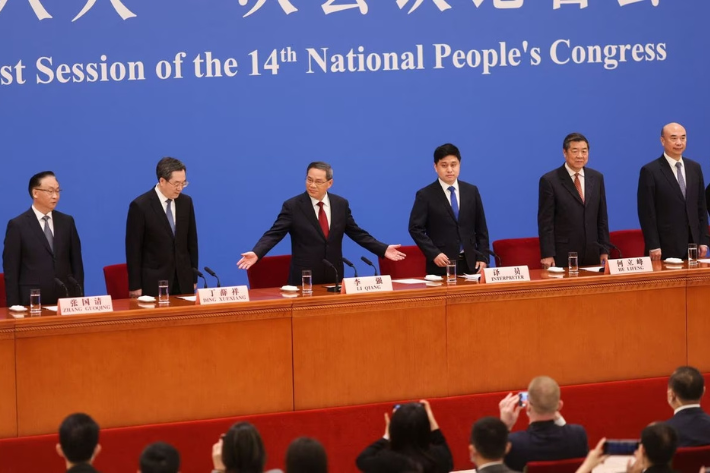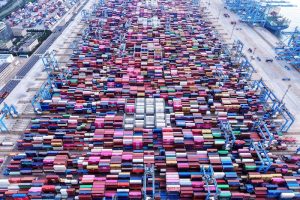Large Chinese delegations of city and business officials have made hundreds of trips to Asia and Europe since December, in a bid to “grab” foreign investment.
Their urgency highlights the pressure local Chinese governments face in boosting growth while burdened with cumulative debt of $9 trillion, said the sources who met Chinese officials in Hong Kong.
“There’s obvious pressure on every level of government to achieve high targets,” said Erik Yim, a legislator representing Chinese enterprises in the Asian financial hub.
Also on AF: China Contemplating Export Ban on Rare-Earth Magnets
Yim added that geopolitical and trade tensions with the United States prompted the delegations to focus more on the rest of the world.
District officials have joined their supervisors at city and provincial levels, along with local businesses, in crossing the border more frequently than ever, according to their social media accounts and three sources who met some of them.
Two prominent executives in Hong Kong, who spoke on condition of anonymity, described the officials they met as being more determined than ever to secure investments for projects ranging from ports and biotech to art and sport.
“China needs foreign capital to boost its economy,” said one of them. “I’ve never had so many people reaching out within such a short timeframe before and also people at such niche levels.”
The other executive and Yim said they had often attended as many as eight to 10 events a day with Chinese officials.
‘Grab new orders!’
In December, footage posted online by the government of the eastern province of Jiangsu showed a 200-strong delegation from China shouting slogans such as “Grab new orders, expand the market.”
The delegation was boarding a 1am private jet to Europe, just two days after China abruptly dropped its stringent zero Covid regime.
The group was set to hold more than 230 commercial meetings in Europe, according to the videos posted on Douyin, the Chinese version of hit app TikTok.
Officials made business trips to locations ranging from Hong Kong to Paris within days of the Covid curbs being lifted.
Several cities have since trumpeted their success in dealmaking, even as many foreign investors reprise long-standing complaints about an uneven playing field for overseas companies in China, intellectual property theft and unpredictable rules.
None of the local governments immediately responded to requests for comment.
Deals across the world
Officials from the southern province of Guangxi boasted on social media last week about securing investment from Hazemag, a German construction solutions firm.
The city of Putian, in southeastern Fujian, said it signed 13 deals worth 21.8 billion yuan ($3.2 billion), for projects in new energy, finance and fashion, during visits to Singapore, Indonesia and Hong Kong.
Fengze, a district in the nearby city of Quanzhou, signed up procurement deals of up to 30 billion yuan from Hong Kong, the city’s social media accounts showed.
The city of Wuxi, near the commercial hub of Shanghai, held 85 signing ceremonies for deals worth 156 billion yuan during a seven-day trip to Hong Kong, Macau and Shenzhen, its Douyin posting showed.
From the southern tech hub of Shenzhen, its United Front Work Department, its Municipal Bureau of Commerce, its Luohu and Futian district governments, have all sent teams to Hong Kong since the city opened its own borders in February.
Stable growth priority
The scramble for investment comes after three years behind closed borders decimated China’s economy.
In 2022, the world’s second largest economy grew at its slowest pace in five decades. China also chose a growth target of about 5% for 2023, lower than the goal of roughly 5.5% it missed last year.
Meanwhile, last week, at China’s Boao Forum, newly appointed Chinese premier Li Qiang vowed to win over foreign investors and support private enterprises.
China is “open for business”, he said at the summit, sometimes touted as Asia’s answer to Davos.
Boao, a district in Shenzhen, alone aims to attract 100 billion yuan in foreign investment this year. 26 business managers and 10 officials responsible for key streets have committed themselves to the task in a letter, Chinese media said.
“Shenzhen this year will do all it can to grab investment, grab projects, grab progress,” Meng Fanli, the city’s party secretary was quoted as saying in the People’s Daily mouthpiece of China’s ruling Communist Party.
“Stable growth is the top priority.”
- Reuters, with additional editing by Vishakha Saxena
Also read:
EU Leaders Back in China, Eyeing Business and Ukraine
Foreign Money Flowing Back Into China on Alibaba, Ma Boosts
Record Inflows to Emerging Market Funds After China Reopening
China’s Yuan is Now the Most Traded Currency in Russia
























